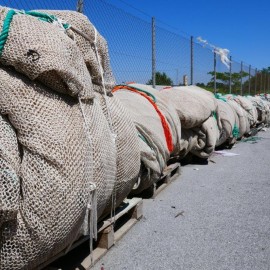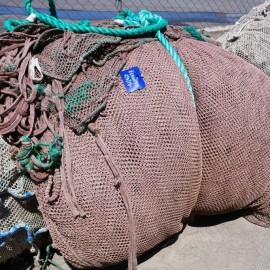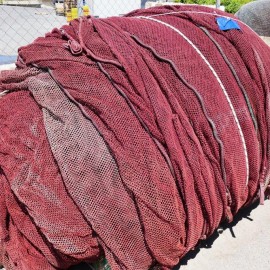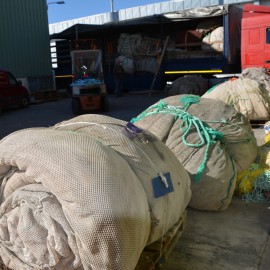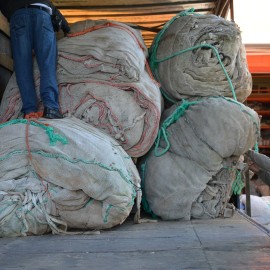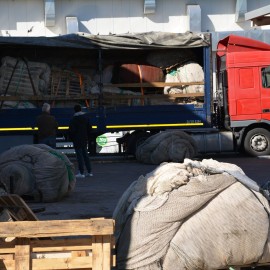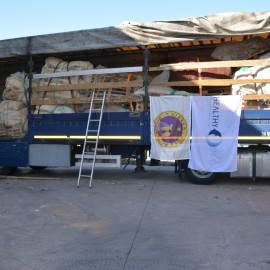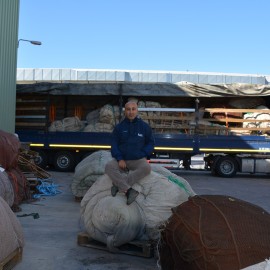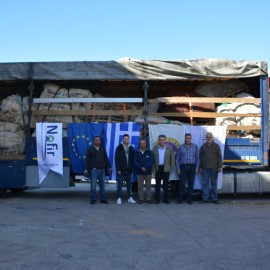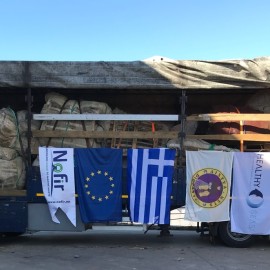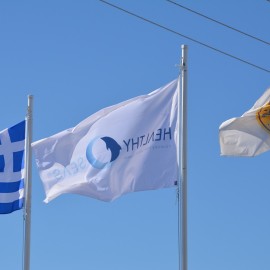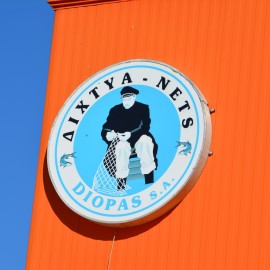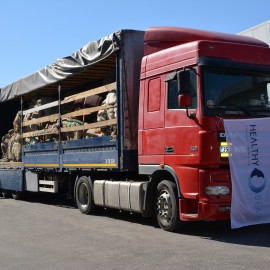On 10 October over 13 tons of waste fishing nets were transported to recycling from Greece, thanks to DIOPAS, a new partner of Healthy Seas in Greece. This major step marks the start of cooperation to bring the old fishing nets from Greek fishermen and fish farmers into the recycling process and so to ensure that as few nets as possible end up in seas in Greece.
By early 1960 the nets used in Greece were cotton yarn, resulting in great inconvenience to the fishermen which they had to was hand dry their nets every day after the fishing because otherwise it rotted. With the invention of nylon, the Japanese built nets of nylon so that fishermen no longer need to wash and dry their nets every day after fishing. In this way created the need for the introduction of nylon nets at first from Japan.
Ioakim Diamantidis – father of the current owners of DIOPAS – began to deal with import fishing nets and resale to fishermen in Michaniona area and environs. After the death of Ioakim Diamantidis in 1982 their children continued selling fishing nets and created a new company called DIOPAS S.A. The company step by step grew and then started manufacture nets for fishing. In 1993 DIOPAS S.A. after the start of the fish farming in Greece (at the end of the 1980s) began manufacturing net cages for fish farming. Alongside started and impregnation of nets with Antifouling and other materials. DIOPAS S.A. today manufacture fish farming nets, fishing nets, fish farming net cages, shading nets, protective nets, predator nets, sport nets etc.
The waste nets collected by DIOPAS will be cleaned, sorted and prepared to recycling by Nofir. Nofir AS was established in 2008 in Norway, in response to increasing problem of net and ropes utilization reported by the Norwegian environmental organizations, fishermen and public institutions. The aim of the company is not only the recovery of recyclable materials but also reducing water pollution caused by discarded equipment from fishing and farming industry.
“We are very pleased with the cooperation with DIOPAS and the Greek fishing & fish farming community”, said Veronika Mikos, project coordinator of Healthy Seas. “According to a recent report, by 2050 there will be more plastic in the seas and oceans than fish. We have to work hard against it, not to let it happen. Today again, we made an important step in that direction.” she said.
Healthy Seas started its activities in Greece at the beginning of 2015 with the help of a local partner MEDASSET-Mediterranean Association to Save the Sea Turtles. Since then 73 tons of fishing nets have been collected by divers and fishermen in order to create healthier seas and recycle marine litter into textile products. The nets will be transformed and regenerated into ECONYL® yarn, a high-quality raw material used to create new products, such as socks, swimwear, underwear and carpets.
For more information visit:
www.diopas.com
www.nofir.no
www.econyl.com
www.medasset.org





